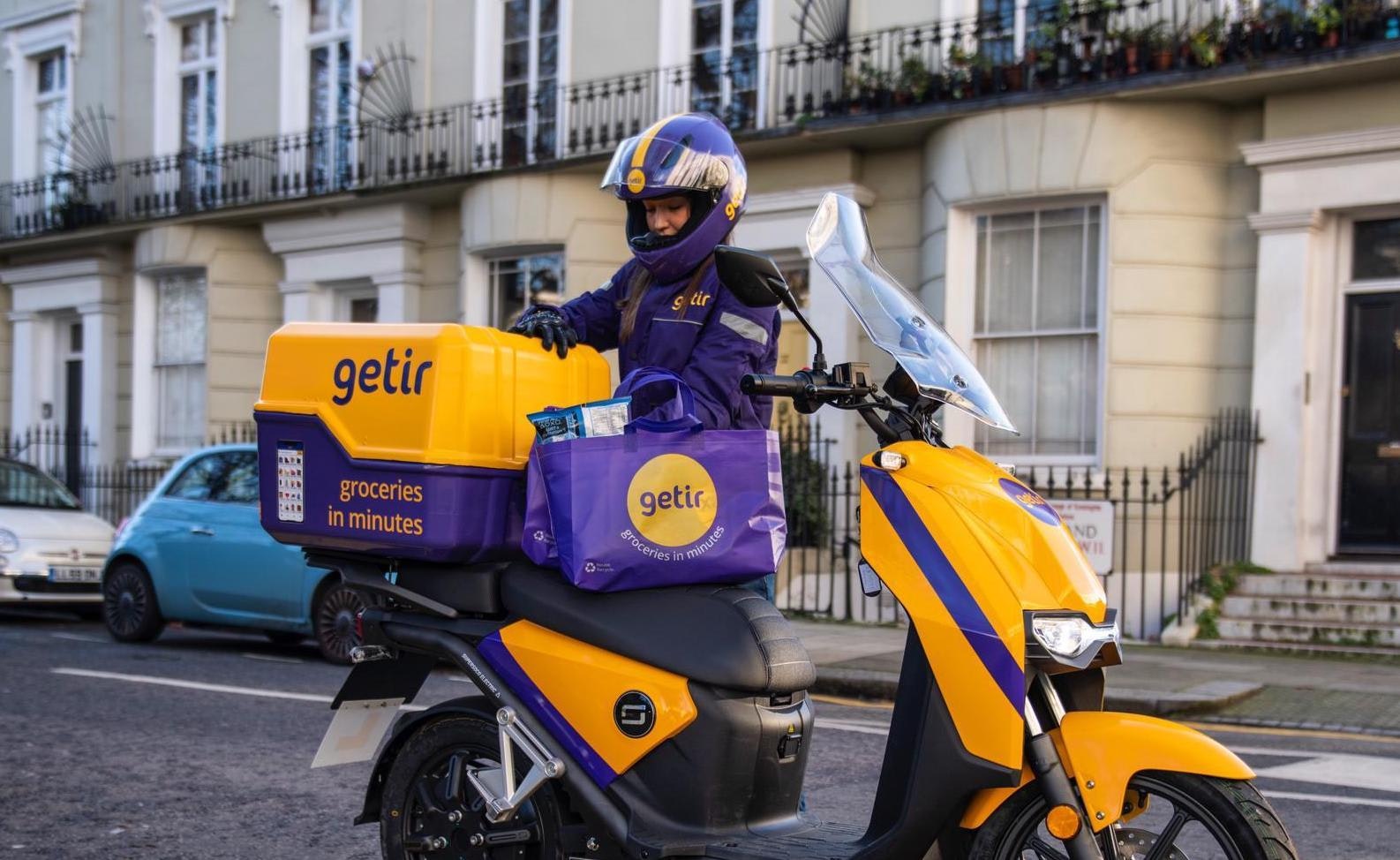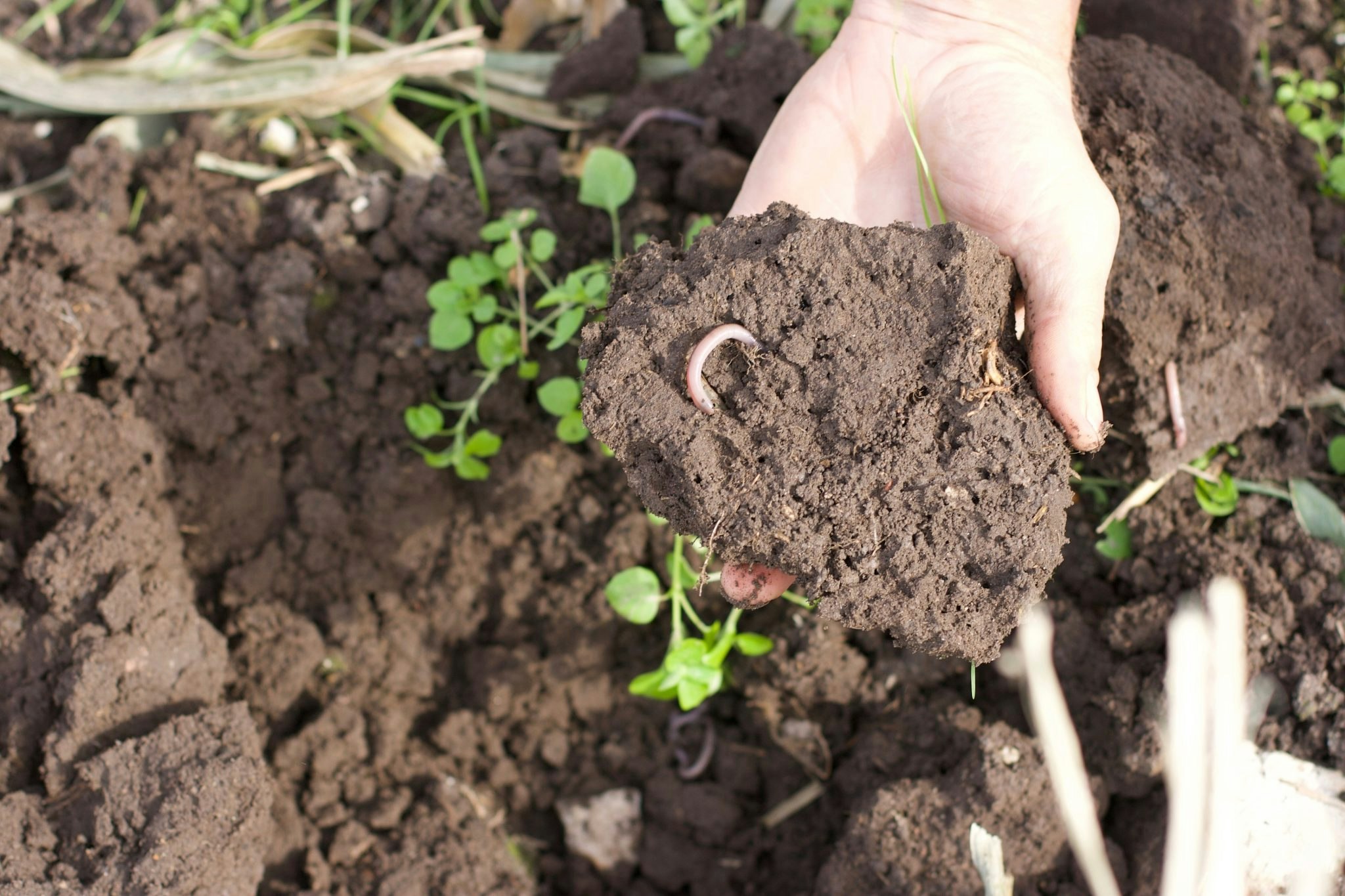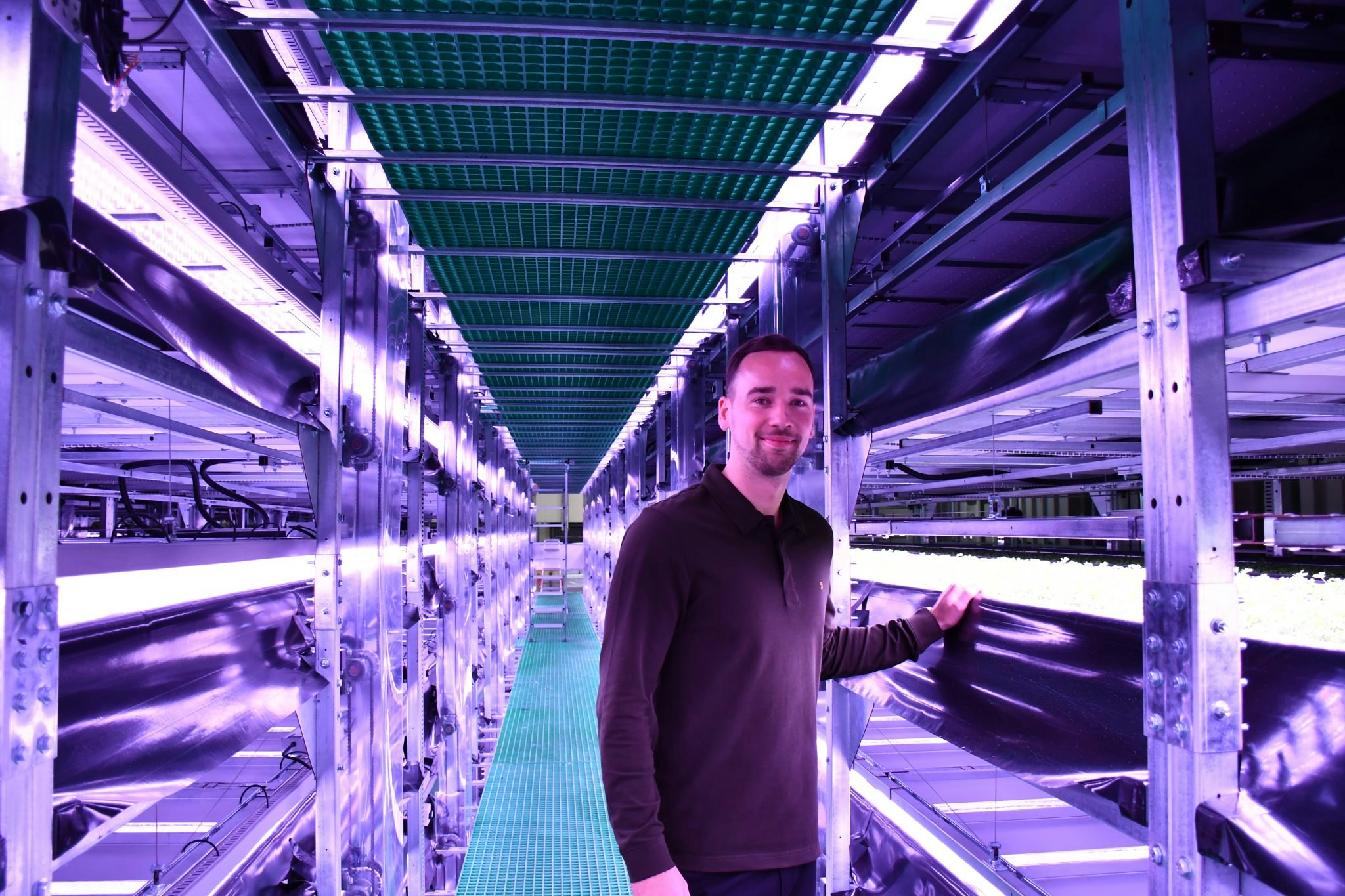Earlier this year, UberEats riders came together on a Reddit forum to discuss the changes the company had made to how it calculated food delivery fees. The riders suspected they were getting paid less as a result — but they couldn’t prove it.
The algorithms delivery companies use to assign fees to orders are notoriously hard to decode, putting the ball firmly in their court.
But now, finally, riders can take matters into their own hands — literally.
A new app, called Rodeo, is being used by 2,500 riders across the UK to track their earnings across multiple apps and work out which companies are giving them the best deal. It shows which days are best to work, which areas are best to work in and at what times — as well as which companies pay the best and the worst.
And, by aggregating data from across the workforce, Rodeo’s also worked out what impact the UberEats algorithm changes have had. “We’ve seen that there's been approximately an 7% cut for drivers,” says Alfie Higgins, cofounder of Rodeo. “The average pay per order stayed the same, but the orders became longer.”
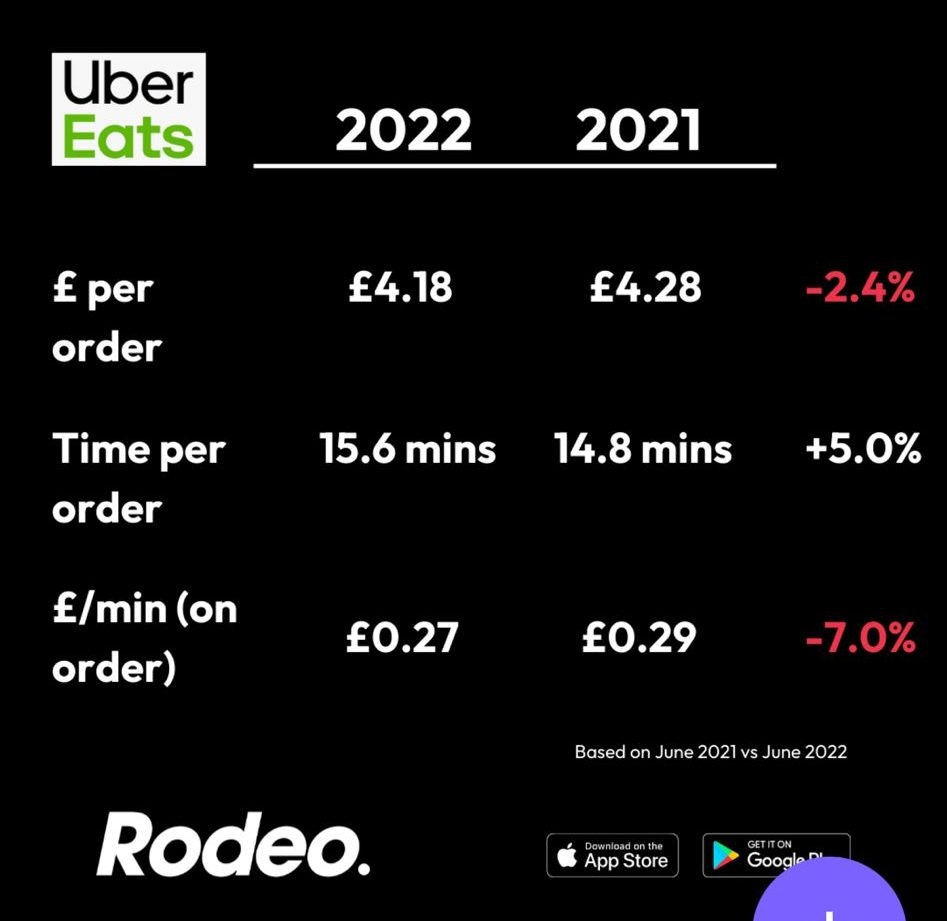
“[Riders] deserve transparency and the right to behave properly independently,” says Higgins. “That means being able to make informed decisions about when and where they work.”
Rodeo champions
Being able to track earnings is one of the biggest advantages of the Rodeo app, says Mike Loftus, a delivery driver for UberEats, Deliveroo and Stuart, a courier company used by JustEat to carry out deliveries in certain areas of the UK.
Typically, rider apps show delivery staff an overview of how many deliveries they’ve completed and the times of those deliveries. But it’s hard to gauge how many hours they’ve worked and what their hourly rate works out as.
“There are some drivers that literally work 14 hours a day, every day. And before Rodeo, you weren’t able to look at how much you were earning; we were just blindly working.”
“You’d get to the end of the week and the (standard company) apps would tell you you’d earned £900 to 1,000, but you had no way of knowing where that was coming from, or how many hours you had put in to do that,” says Loftus. “It’s all well and good earning £1,000 and all, but when you’ve got no life because of it, it’s a different matter.”
Rodeo’s data on how much delivery riders earn could also come in useful if workers have a chance to discuss pay rates with the companies.
“Stuart has an issue at the moment because workers are beginning to strike due to a pay change,” explains Loftus. “I’ve asked Rodeo to look into it today, because they have the data which shows what an average order is now compared to 12 months ago.”
“That data is invaluable,” he adds. “We can go back to the companies with actual figures and say ‘Look, this time last year we were making £5 per order, and now we’re making £4.80, for example.’ We can actually quantify what we’re losing or gaining.”
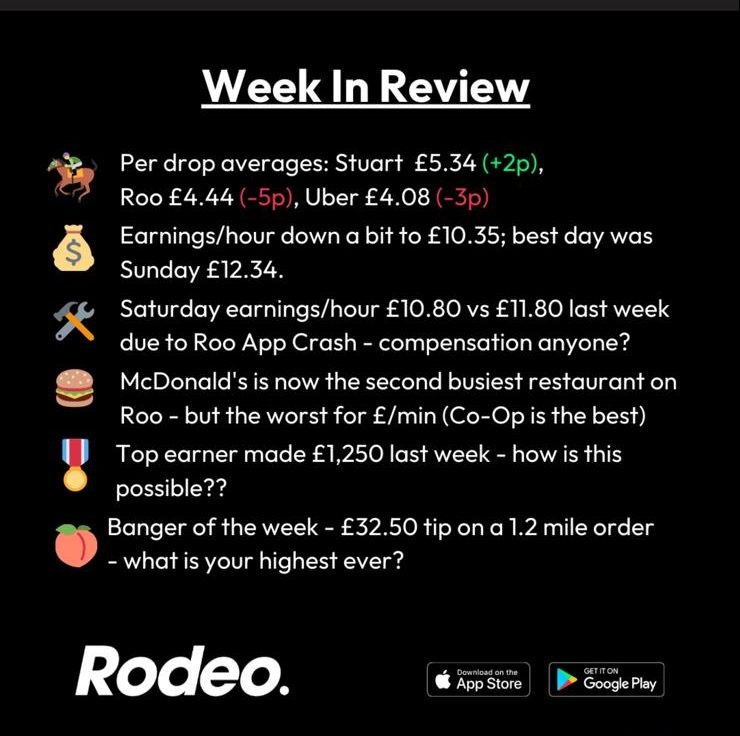
For Milo, it’s the “community side” of the app that he really likes. He can connect with other drivers from different areas who share tips about the good — and the bad — restaurants to work for in specific areas.
“I have recently given up delivering for UberEats. I've looked at my stats over the last month and I can see that I'm spending a lot of time delivering for Uber and I'm not making as much money as I could be,” says Milo. “And that was purely down to the data I saw in Rodeo.”
Not all riders are so sure
Joe Durbidge, a rider from London who’s worked for Deliveroo and other apps for four years, says that there’s a need for more transparency for riders.
“There is a massive asymmetry of information, that's how these platforms operate. Riders don't know how work is priced and, increasingly over time, the pricing has become more opaque,” he says.
Loftus agrees, adding that delivery staff have little or no communication with the companies they work for.
With Uber and Deliveroo, you feel like you’re working for a faceless organisation
“With Uber and Deliveroo, you feel like you’re working for a faceless organisation. I’m lucky to have never had an accident on a job or anything where I’ve had to contact support, but you feel like you don’t have the contact there at your fingertips,” he explains.
But Durbidge isn't convinced that Rodeo has the answers.
“The model is essentially a free market model, based on the idea that if riders have more information about where they should work then they can make decisions on how they operate to increase their wages,” he says.
“But we know how the marketplace works. I know London, intimately, I know where all the work comes from, and so does anyone else who's doing this. We just don't have enough work.”
The number one variable that actually affects riders’ incomes is the volume of riders available, and the apps overhire at every opportunity, meaning there’s often not enough work to go round, he says.
The premise of Rodeo, in Durbidge’s eyes, is that the perfect rider supply market can be created if riders are empowered to select the ideal order opportunities, because they’ll then compete against each other to get those ideal orders. That’s the opposite of what’s needed, he says — the answer instead is collective action together as a workforce.
Durbidge is also sceptical of the Rodeo founders’ motivation.
“They’re trying to monetise riders’ data,” he says; Rodeo plans to advertise financial services and insurance to riders.
Some of the aggregated data on pay that Rodeo collects could be useful, but it should be in the hands of unions or collectives of riders, rather than people trying to monetise the workforce, he adds.
Calls for regulation
What’s needed instead, Durbidge argues, is regulation from governments to force the tech companies to be more transparent about their algorithms.
There’s discussion of whether apps could introduce personalised pricing, for example, where riders are shown different fees based on the fee the algorithm deduces each individual rider will accept — something Durbidge says regulation should protect workers against.
There have been some gains made for riders through regulatory changes. Spain, Portugal, Italy and the Netherlands now classify workers as full-time employees, entitling them to benefits.
But attempts to bring in regulations to get the companies to open up their algorithms are yet to be successful. UberEats couriers in the Netherlands, for example, have launched a legal bid to bring more algorithmic accountability.
For now, as regulation can take years to come to fruition, more and more riders across the UK are downloading Rodeo — perhaps the best of the limited tools riders currently have.
